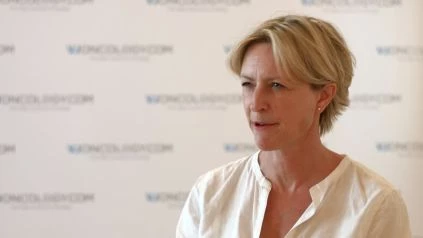Eva Lehner-Baumgartner, PhD, of the Medical University of Vienna, Vienna, gives an overview of her talk on strategies to support skin cancer patients beyond therapy. First, she discusses emotional distress. Dr Lehner-Baumgartner explains that emotional distress is a mixture of feelings, named by Jimmie Holland, a pioneer in psycho-oncology. This describes the emotions that patients experience when confronted with the diagnosis of cancer. She further explains that in the talk, they will focus on how to assess stress severity, looking for determinants of stress severity, and finally, look at the psycho-oncological care needs for patients with skin cancer. Concerning emotional distress, it is important to highlight that the emotional problems not only affect the patients, but also the family members. She explains that the spouse of the patient can be as stressed as the patient. If a parent has cancer, it is also a very difficult time for the children as there is a huge change in social roles at home. Parents tend not to want their children to know that they are sick, so this will also form a huge part of the discussion regarding emotional distress. Secondly, measuring distress severity is important as if it is not identified in patients, high levels of distress could ultimately affect the treatment outcome, decreasing the quality of life and causing high costs for the health system. There are many methods of measuring emotional distress: you can ask the patient and their spouse how they feel, you can do semi-structured interviews, or even ask the patient to complete a patient self-report. Alternatively, a distress thermometer can be used to measure the levels of emotional distress. This will enable the doctors to talk to the patients about what the results mean. Finally, the determinants of distress severity, i.e. the factors that influence how a patients copes with the disease; clinical factors are important as well as demographic and psychological factors. Recent studies have shown that clinical information, i.e. disease- and treatment-related factors, do not play as much of an important role in the experience of distress as perhaps thought. Now, research is being done to look into how physicians and therapists can recommend solutions and support patients through this time.
Recorded at the 2016 World Congress on Cancers of the Skin (WCCS) and the Congress of the European Association of Dermato-Oncology (EADO) in Vienna, Austria.
[the_ad id="32629"]

